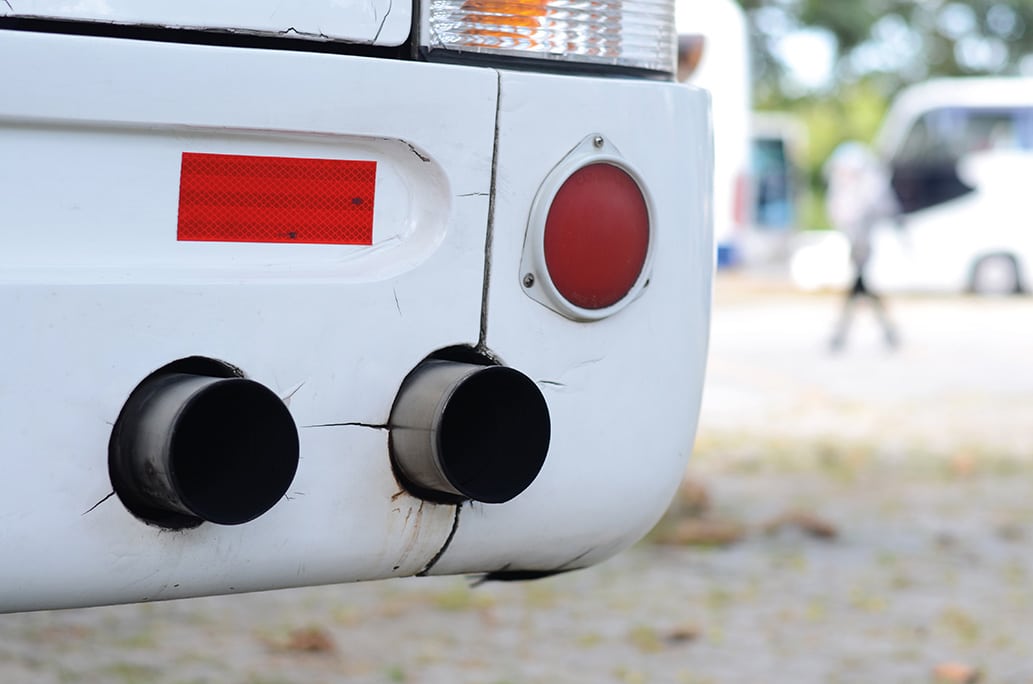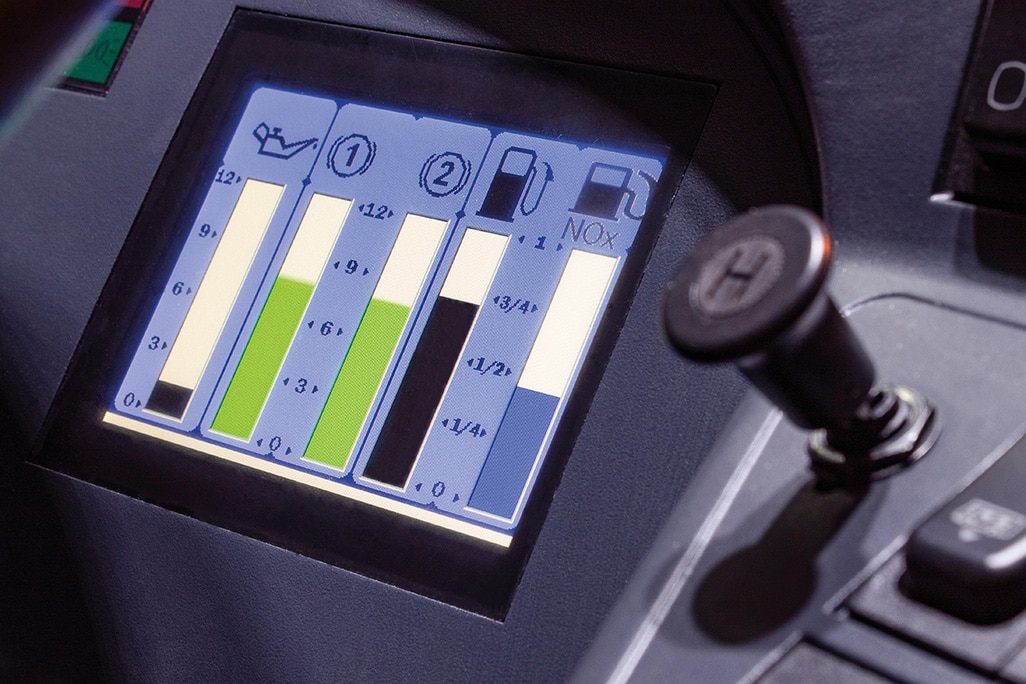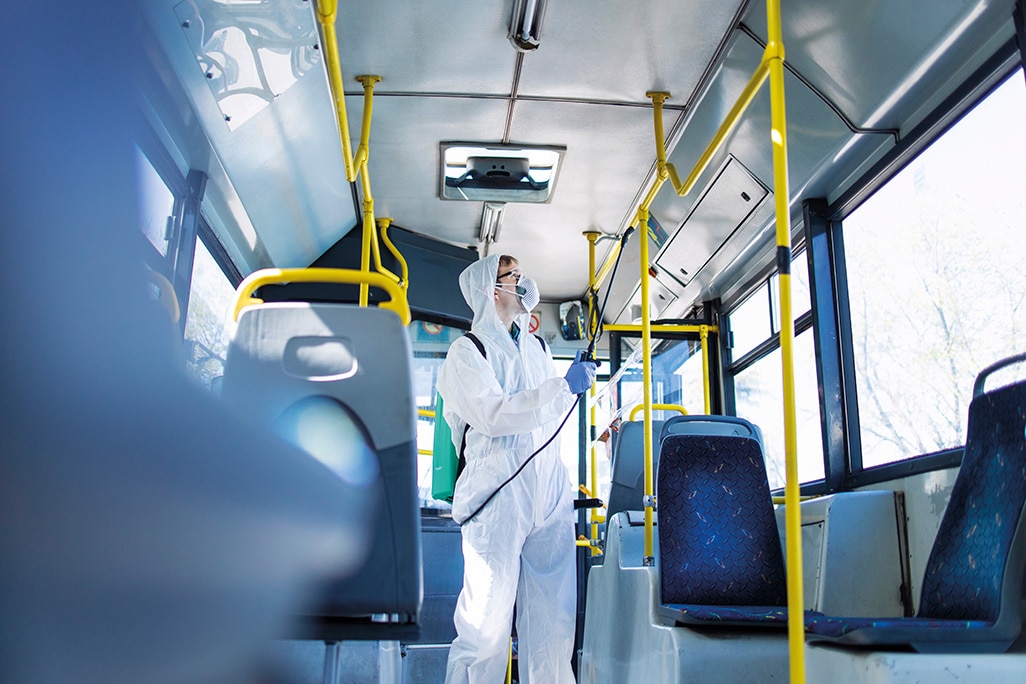SCR systems in engine exhausts that use AdBlue are sometimes exposed to deposit build-up. Yara says Optispray can prevent problems occurring
Solutions for diesel engines will be necessary for a good many years, and since the advent of emissions standards selective catalytic reduction (SCR) has been an option for operators seeking post-combustion treatment in exhaust systems to achieve compliance with stricter ratings.
In SCR systems, diesel exhaust fluids (DEFs), often marketed as AdBlue, are injected from a dedicated storage tank as vapour into the exhaust pipe in front of the SCR catalyst.
Ammonia, the active ingredient in the DEF solution of urea and deionised water, reacts to break down harmful nitrogen oxide (NOx) exhaust gas into nitrogen and oxide, dramatically reducing NOx emissions in diesel engines. But there are complications associated with DEFs, and AdBlue producer Yara is here to keep fleets operating cleanly and smoothly.
Yara – global supplier
In 2007, Yara was one of the very first suppliers to start producing an AdBlue solution and bring it to the market. “It started off very small with intermediate bulk containers (IBCs) and then it built into the huge business that it is now,” says Yara Optispray Business Manager Kristian Reeve.
Yara now claims to be the largest producer as well as distributor of AdBlue. That success is down to added value and the quality of the product, Kristian explains. Liquid urea, known as a hot melt, is produced in two main facilities – Brunsbüttel in Schleswig- Holstein, Germany, and Sluiskil in the Dutch province of Zeeland. The hot melt is then mixed with deionised water to produce AdBlue at a concentration of 32.5% for diesel engines. A 40% solution finds its use in industrial applications.
The solution is transported from continental Europe to three terminals in Immingham, Dagenham and Liverpool, each with a capacity of five million litres. The Immingham facility acts as a dilution plant where the product, imported at 50%, is diluted to either the 40% solution or 32.5% solution. Both the Dagenham and Liverpool facilities have the finished product at 32.5% concentration delivered by ship, where it is then placed into tanker trucks for distribution.
According to Kristian, the first time the product hits the atmosphere is when the AdBlue leaves a customer storage unit and enters a vehicle. “As far as quality is concerned, there is none better,” he says.
Kristian also points out that Yara supplies AdBlue accessories such as tanks, as well as repair and maintenance to those tanks such as annual services and callouts if the unit runs into trouble: “AdBlue may be a lesser spend for an organisation, but it is a critical component, so we need to make sure it can get out of the nozzle.”
A dedicated customer service centre in Vilnius in Lithuania acts as a one-stop shop that looks after deliveries and equipment.
Crystallisation in fleets
Despite the benefits of AdBlue in cleaning up exhaust emissions, use of SCR systems has presented a problem in some applications, particularly where exhausts do not run up to temperature and where engines are idling, running at low speeds or experiencing a high number of stop-start cycles.
Nozzles used to spray AdBlue into the exhaust are, as Kristian puts it, “low tech” and result in non-uniform molecules entering the exhaust stream. While most molecules have the desired effect in the system and cause the chemical reaction with NOx, some molecules are larger than others, and it is those larger molecules which begin to coat the vehicle’s SCR system if it is not given the opportunity to run up to a high enough temperature.
This solidified urea in the SCR injection system is known as crystallisation. Once the solidification process begins, it is easier for that deposit build-up to worsen. Back pressure alarms warn of blockages, engines can lose power, and in a worst-case scenario, Yara warns it can lead to engine failure.
“The larger urea molecules don’t burn efficiently at low temperatures,” Kristian says. “That is when you start to see a build-up of crystallisation, and when that build-up begins it only gets worse as time goes on. Problems with the SCR and exhaust system then begin to occur, such as blockages, which then turns into downtime because the vehicle has to be taken off the road. Then there is the expense of getting the SCR system repaired or replaced.” Yara’s solution is Optispray. Using an additive not found in typical AdBlue solutions, Optispray coats the urea molecules to make them uniformly small. This means they burn efficiently even at low temperatures and this helps to prevent build-up of crystallisation.
Optispray is still a 32.5% urea solution and can be mixed with regular AdBlue without problems. The additive makes up 0.05% of the solution. It can act as a complete replacement for AdBlue, making it suitable for low engine load fleets operating in cold conditions to high engine loads over long distances. Operators of bus fleets can continue to use AdBlue for vehicles on long runs, while selecting Optispray for those vehicles at risk of crystallisation.
With Optispray initially available in pallets of 10-litre cans or 1,000-litre IBCs, Yara has now begun to supply AdBlue and Optispray together in bulk.
“We can now supply bulk Optispray and AdBlue with the same vehicle, so we can do multidrops,” Kristian explains. “That means we can drop 5,000 litres of AdBlue from one tank and in the next we can drop 2,000 litres of Optispray. That’s the big development that we have with regard to the Optispray market itself. Like any product, that goes from cans to 1,000-litre IBCs to bulk, the price goes down – so it is the cheapest alternative.”




























